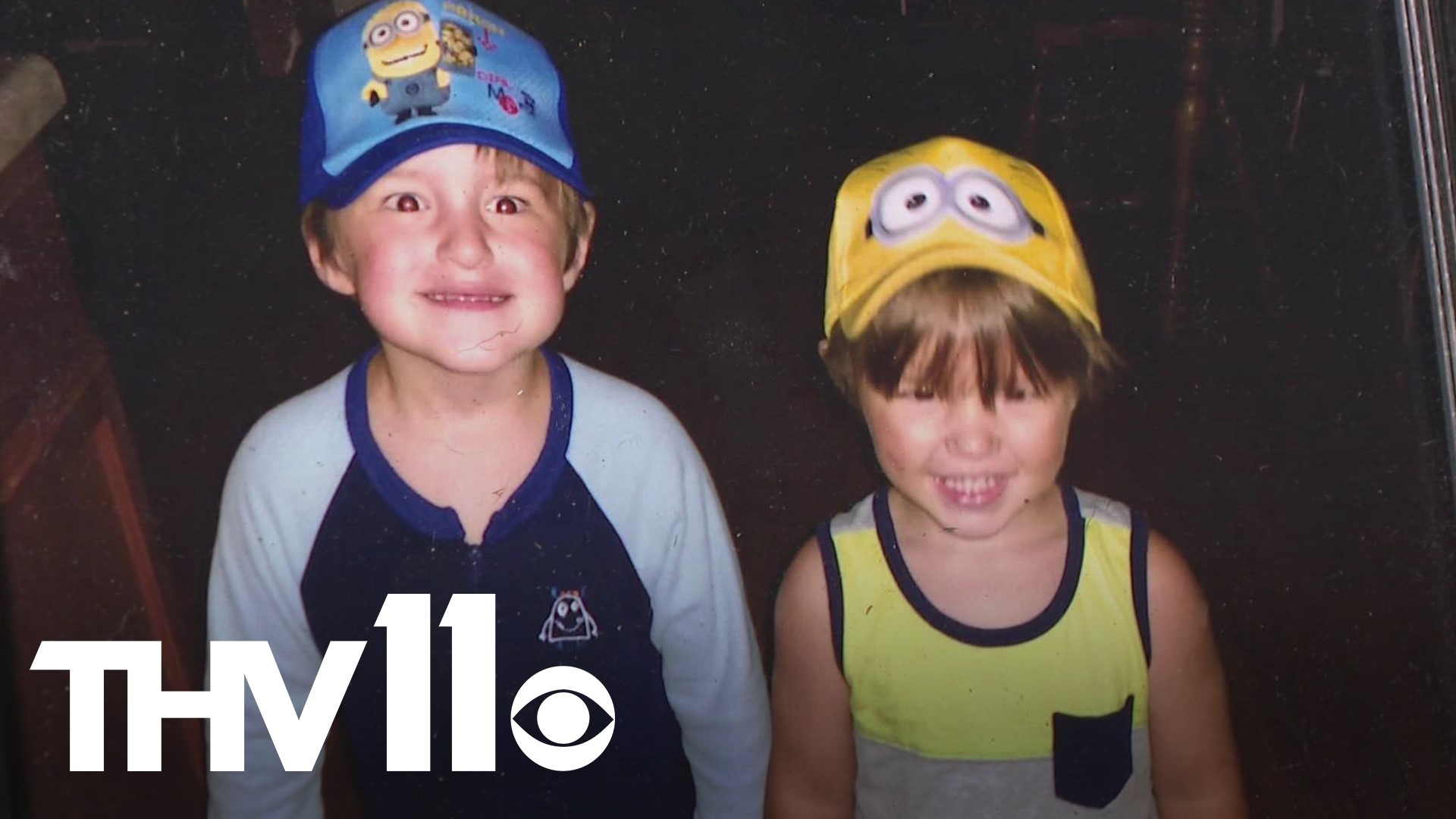LITTLE ROCK, Ark. — For many people summer means plenty of trips to the pool. But as temperatures start rising, so should your awareness about the dangers around water.
That was unfortunately the case for one Arkansas father, who got a dreadful call one day that his son had been pulled from a pool and rushed to the hospital.
The call was a horrifying scenario that no parent ever wants to find their children in, but now the father is turning his mourning into a message for others.
"I left that early morning for work," Brandon Love said, recounting the day.
Love said the adults in the house were sleeping, with the older kids going outside and their younger children following shortly after.
Love's son and nephew managed to climb into a neighbor's backyard pool using a ladder that had been left inside--which is when the unthinkable happened with neither of the two children surviving.
"It's not something I'd wish on my worst enemy," Love said.
According to the Centers for Disease Control and Prevention (CDC), drowning is a leading cause of death for children. In fact, more children between the ages of 1 and 4 die from drowning than anything else except for birth defects.
The CDC said drowning can happen quickly and quietly, especially with unsupervised children.
"That's the kicker to this. It could have been prevented," Love said.
Safety around swimming is a conversation that Karen Lamoreaux, founder of Safety Before Skill Swim School, encourages guardians to have with children, but understands that there may be a stigma associated with it.
"I think one of the reasons why it doesn't come up in conversations as much as it should is because there's a shame attached to it," Lamoreaux said. "We tend to make judgement when we hear these stories that somehow these were bad or neglectful parents and that's simply not true. Drowning happens to the best of parents."
Lamoreaux is a huge advocate for swim safety and said the most effective thing parents can do to keep their children safe around water is enroll them in early intervention swim lessons.
"We start at [age] 4 months old at Safety Before Skill. We want them to know what to do before they're crawling, before they can get to the water without mom or dad," she said.
Lamoreaux and many other swim safety experts are also warning parents about the dangers of using certain flotation devices.
"The floaties, the inflatable ones that go over the arms are the absolute worst thing," she said. "We want to avoid those devices because they put our children in a vertical position in the water so they move like [this] through the pool and that's also known as the drowning position."
Devices like arm floaties fool kids into feeling as though they can swim independently when they're not wearing them, even when they're not skilled enough to do so.
"The bottom line is that our children should spend more time without a floatation device than with it. We've gotten kind of lazy over the years as parents," Lamoreaux said. "We want to put a flotation device on them so we can have our hands free and enjoy our time at the pool. But what that does is it creates this really false sense of security, and the littlest ones don't understand that it's the flotation device that's doing the work."
That's an attention to detail that Love is building upon. He's now turning the loss of his son and nephew into life lessons and a sense of security for both him and other parents.
Love's daughter is taking swim classes and he's making it his mission to educate other parents on the importance of water safety. He hopes that message can help potentially saving someone else's life.
"It only takes two seconds for kids to slip away so why not just go ahead and enroll them in lessons and get them the skills they need," Love said.
If you're interested in swimming education for your little one, you can find more information on Safety Before Skill’s resources here.

